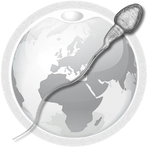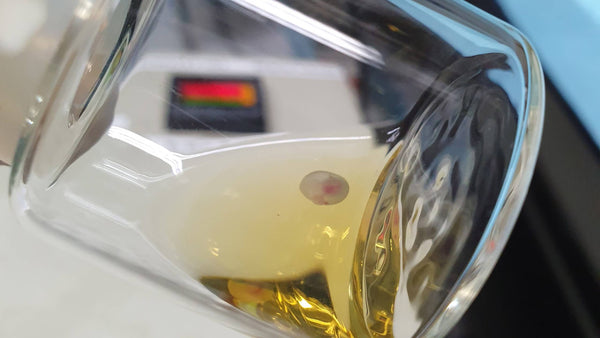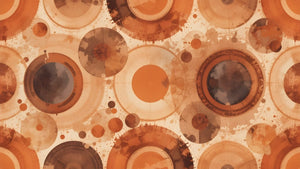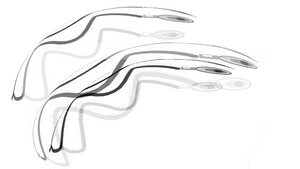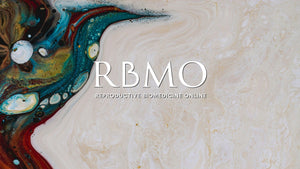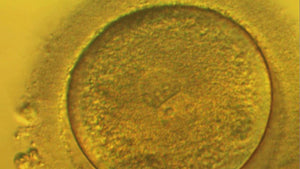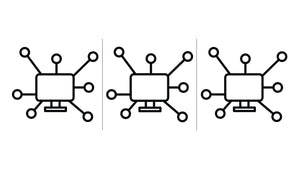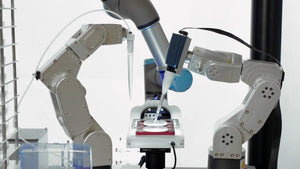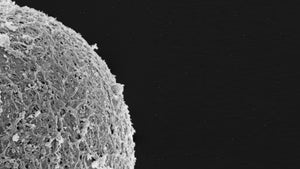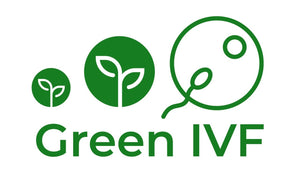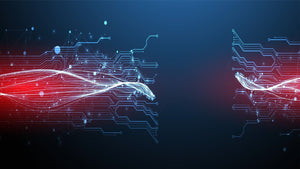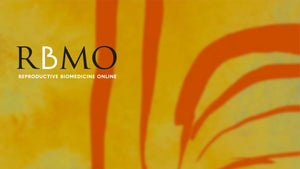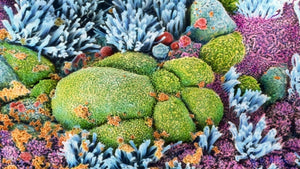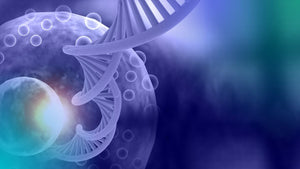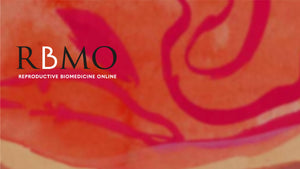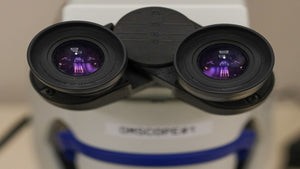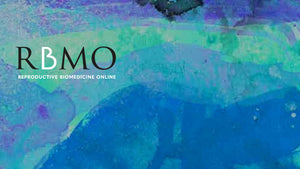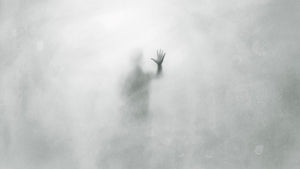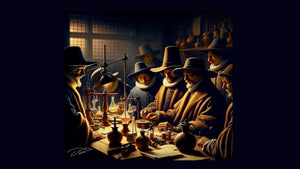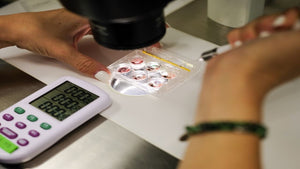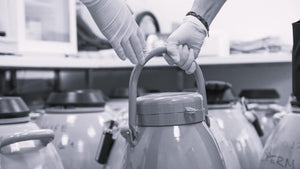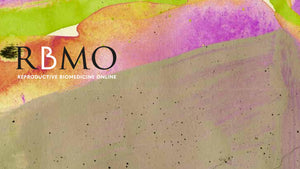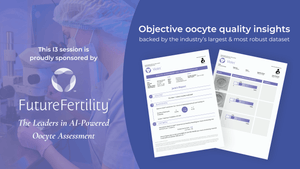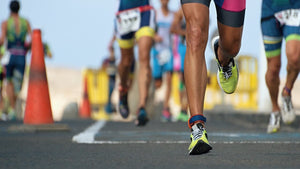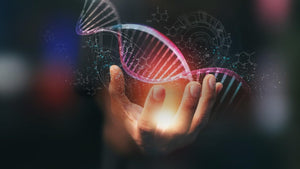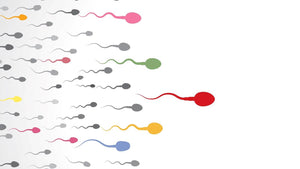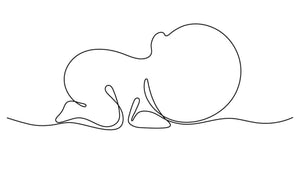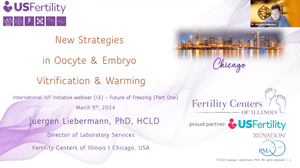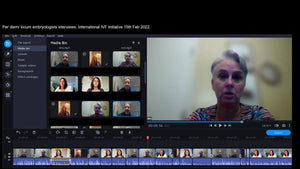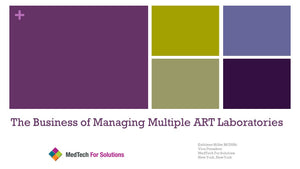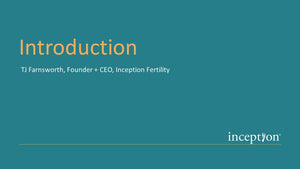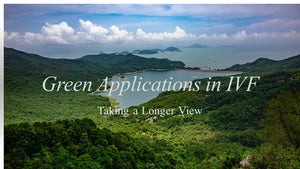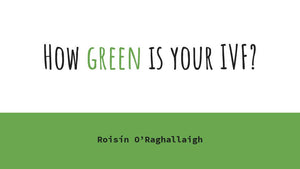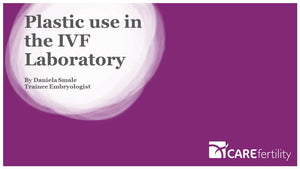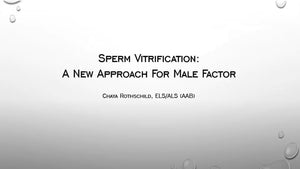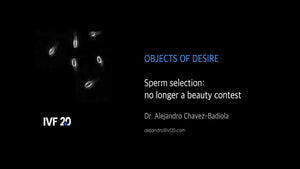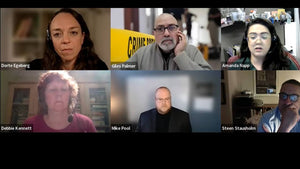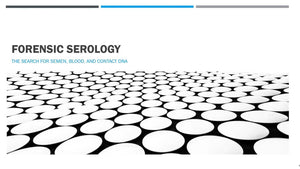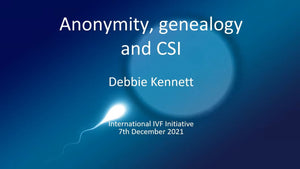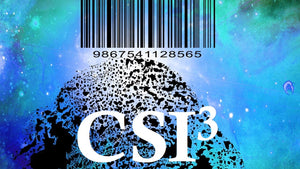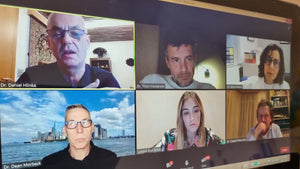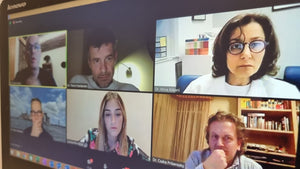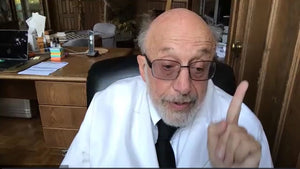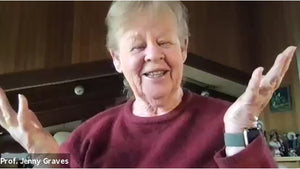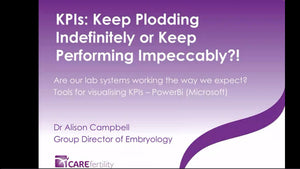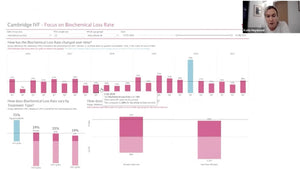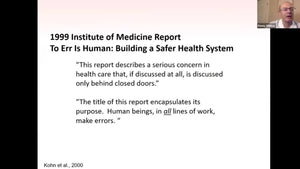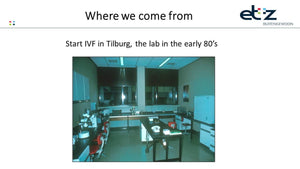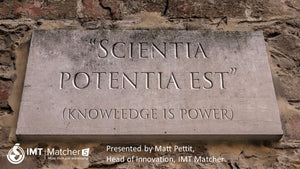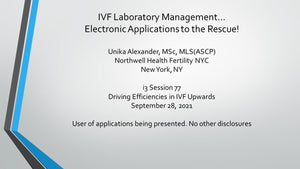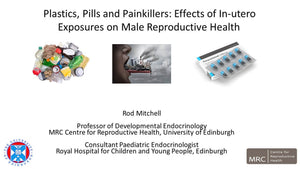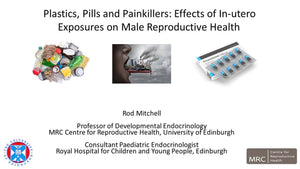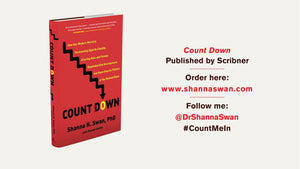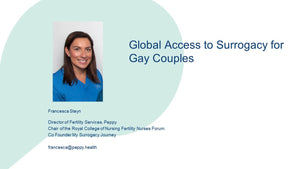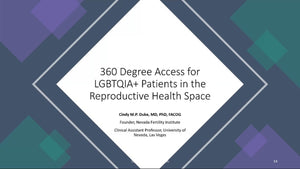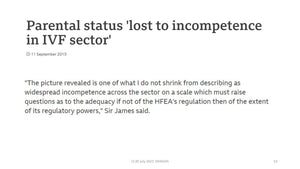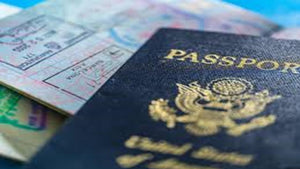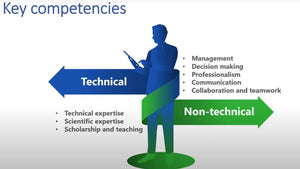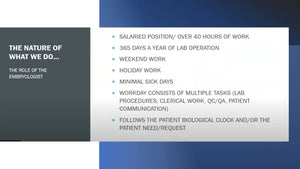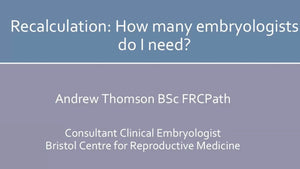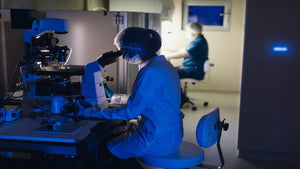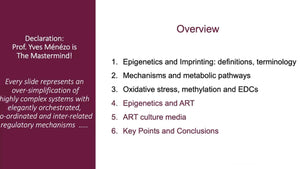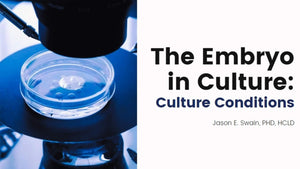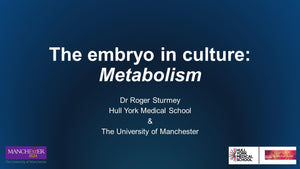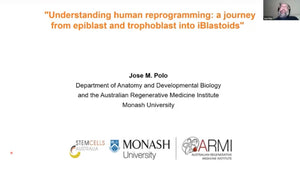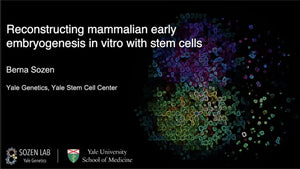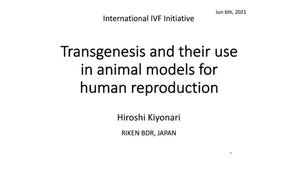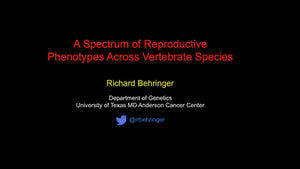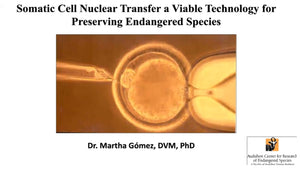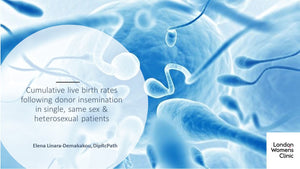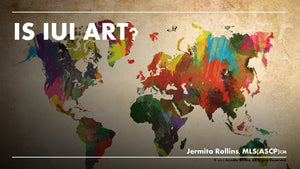Session 63: Ex utero

Donate
At the International IVF Initiative, we are committed to providing free access to our educational sessions, webinars, and resources for professionals and individuals passionate about advancing reproductive medicine. We believe that cost should never be a barrier to knowledge and collaboration. By contributing, you’re ensuring that valuable educational resources, expert insights, and collaborative opportunities remain open to all without financial barriers. Together, we can continue to foster a global community dedicated to innovation and excellence in the field of IVF.
Your Donation
Thank you!
Session 63: Ex utero
Tuesday 11th May, 2021. 3PM EST/ 8PM GMT / 9PM CET
Moderators: Prof. Susana Chuva de Sousa Lopes and Prof. David Albertini"Brave New Lab-An Introduction to the Latest Developments"
Prof. David Albertini
"Symmetry Breaking in the Human Embryo"
Bailey Weatherbee
"In vitro Culture of Post-implantation Embryos"
and "Ex utero Mouse Embryogenesis from Pre-gastrulation to Advanced Organogenesis"
Alejandro Aguilera Castrejon
ALEJANDRO AGUILERA CASTREJON
 Alejandro Aguilera obtained a B.Sc. in biology (2015) at the National Autonomous University of Mexico, performing his thesis research at the Institute for Cellular Physiology working on reprogramming of human bone marrow mesenchymal stem cells into neurons. In 2016, he moved to Israel for his M.Sc and PhD. degree in Life Sciences at the Weizmann Institute of Science, under the supervision of Prof. Jacob Hanna. Since then, Alejandro has been focusing on devising platforms for in vitro growth of mammalian embryos, harnessing these new platforms for studying the mechanisms regulating early mouse embryogenesis.
Alejandro Aguilera obtained a B.Sc. in biology (2015) at the National Autonomous University of Mexico, performing his thesis research at the Institute for Cellular Physiology working on reprogramming of human bone marrow mesenchymal stem cells into neurons. In 2016, he moved to Israel for his M.Sc and PhD. degree in Life Sciences at the Weizmann Institute of Science, under the supervision of Prof. Jacob Hanna. Since then, Alejandro has been focusing on devising platforms for in vitro growth of mammalian embryos, harnessing these new platforms for studying the mechanisms regulating early mouse embryogenesis.BAILEY WEATHERBEE
 Bailey Weatherbee is currently a second year PhD student at the University of Cambridge Physiology, Development and Neuroscience Department funded by the Gates Cambridge Trust. She is supervised by Dr. Magdalena Zernicka-Goetz and focuses on cell identity and development of human embryos during and following implantation and using stem cells a model of embryonic and extraembryonic tissues during these stages. Prior to her PhD, Bailey received an Honors Bachelor of Science in Biology with a concentration in Cellular/Molecular Biology and Genetics and minors in Biochemistry, Writing and Political Science from the University of Delaware. At Delaware, Bailey completed her thesis work in Dr. Salil A. Lachke’s laboratory focusing on the role of RNA-binding protein-mediated post-transcriptional regulation in mouse ocular lens development and cataract.
Bailey Weatherbee is currently a second year PhD student at the University of Cambridge Physiology, Development and Neuroscience Department funded by the Gates Cambridge Trust. She is supervised by Dr. Magdalena Zernicka-Goetz and focuses on cell identity and development of human embryos during and following implantation and using stem cells a model of embryonic and extraembryonic tissues during these stages. Prior to her PhD, Bailey received an Honors Bachelor of Science in Biology with a concentration in Cellular/Molecular Biology and Genetics and minors in Biochemistry, Writing and Political Science from the University of Delaware. At Delaware, Bailey completed her thesis work in Dr. Salil A. Lachke’s laboratory focusing on the role of RNA-binding protein-mediated post-transcriptional regulation in mouse ocular lens development and cataract.PROF. SUSANA M. CHUVA DE SOUSA LOPES
 Susana M. Chuva de Sousa Lopes is Full Professor Human Developmental Biology at the Dept. Anatomy and Embryology, Leiden University Medical Center, the Netherlands and appointed Guest Professor at the Dept. Reproductive Medicine, University Ghent, Belgium. Her lab is mainly focused on the urogenital system, in particular the germ cells, and how the (epi)genetic information is transmitted from generation to generation. She is engaged in the development of assays leading to the maturation of oocytes from ovarian material (artificial ovaries) and in vitro gametogenesis. She was awarded the de De Snoo-van’t Hoogerhuijs prize and Aspasia awards, is funded by ERC and VICI grants and is the current coordinator of the Special Interest Group “Stem Cells” of the European Society of Human Reproduction and Embryology (ESHRE).
Susana M. Chuva de Sousa Lopes is Full Professor Human Developmental Biology at the Dept. Anatomy and Embryology, Leiden University Medical Center, the Netherlands and appointed Guest Professor at the Dept. Reproductive Medicine, University Ghent, Belgium. Her lab is mainly focused on the urogenital system, in particular the germ cells, and how the (epi)genetic information is transmitted from generation to generation. She is engaged in the development of assays leading to the maturation of oocytes from ovarian material (artificial ovaries) and in vitro gametogenesis. She was awarded the de De Snoo-van’t Hoogerhuijs prize and Aspasia awards, is funded by ERC and VICI grants and is the current coordinator of the Special Interest Group “Stem Cells” of the European Society of Human Reproduction and Embryology (ESHRE).
PROF DAVID ALBERTINI

David Albertini received his Ph.D. from Harvard University working on the cell biology of the mammalian ovary. After postdoctoral work at the University of Connecticut Health Center, he returned to Harvard Medical School as an Assistant Professor of Anatomy and Cell Biology until 1984, and was an Associate Professor and Professor at Tufts University School of Medicine up to 2004. At Tufts, he served as Chair of the Department of Anatomy and Cell Biology (1996-2000), Director of the Center for Reproduction (1999-2003) and Director of the Confocal Microscopy core (1988-1999). From 2004-2016, he held the Hall Professor of Molecular Medicine Chair at the Kansas University Medical Center where he continued his career long interests in biomedical imaging and oocyte and embryo development, as it pertains to the practice of human Assisted Reproduction Technologies.
He currently serves as Visiting Senior Scientist at The Center for Human Reproduction and The Rockefeller University in New York City and Professor of Reproductive Cell Biology at the Bedford Research Foundation (MA). Since 2009, he has been the Editor-in-Chief of the Journal of Assisted Reproduction and Genetics (JARG), and has been the recipient of many awards including a Basil O’Connor fellowship from the March of Dimes, the Hammond Medal from the Society for Reproduction and Fertility (UK), the Founder’s Lecturer for the Australian Society of Reproductive Biology, The Beacon Award from Frontiers in Reproduction among others. He has served on scientific advisory boards for the National Science Foundation, National Institutes of Health, American Cancer Society and grant review councils in Scotland, England, Portugal, Italy, Belgium, and Turkey and continues to advocate for fair use of ARTs in patient care based on sound scientific principles.
